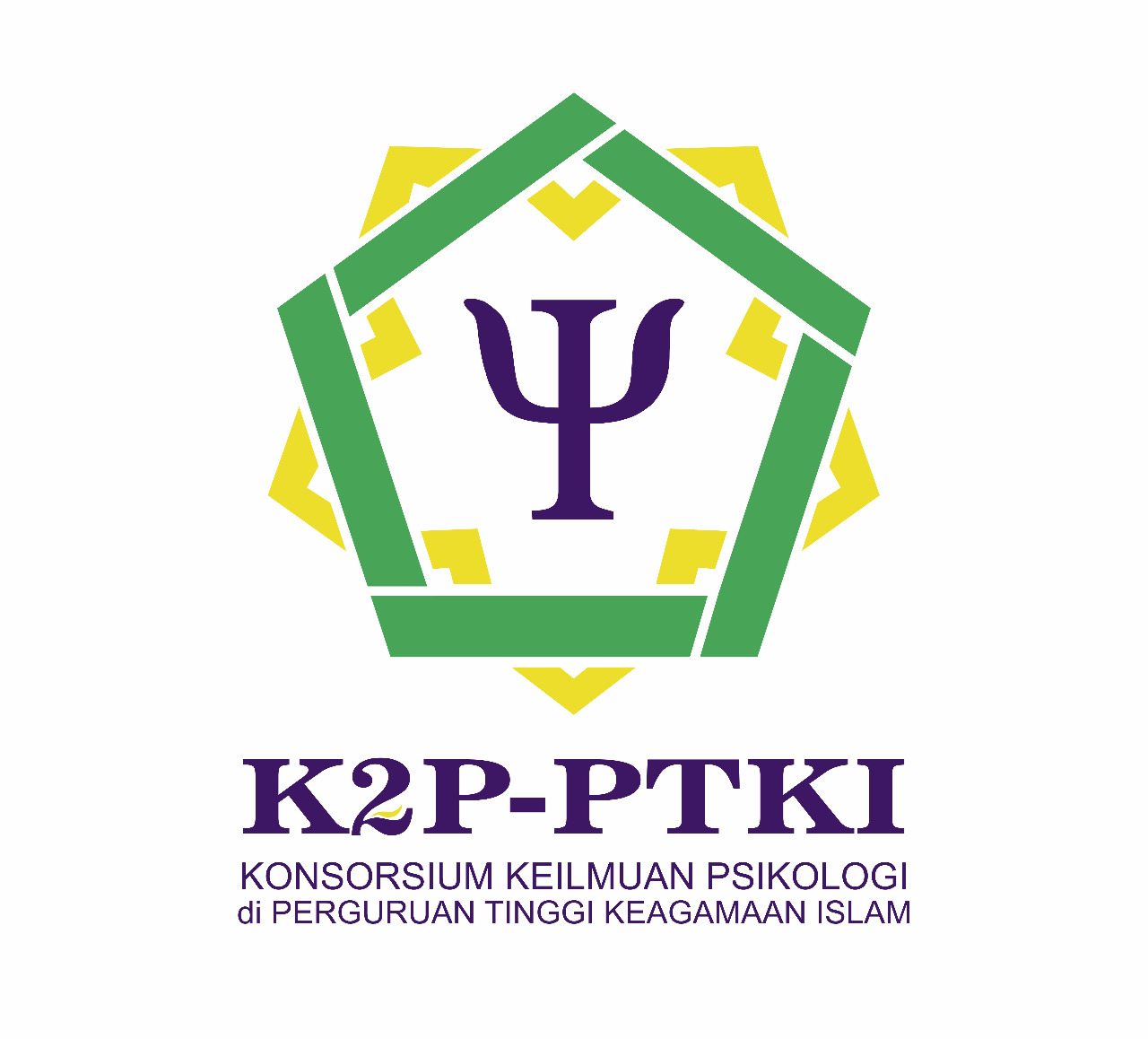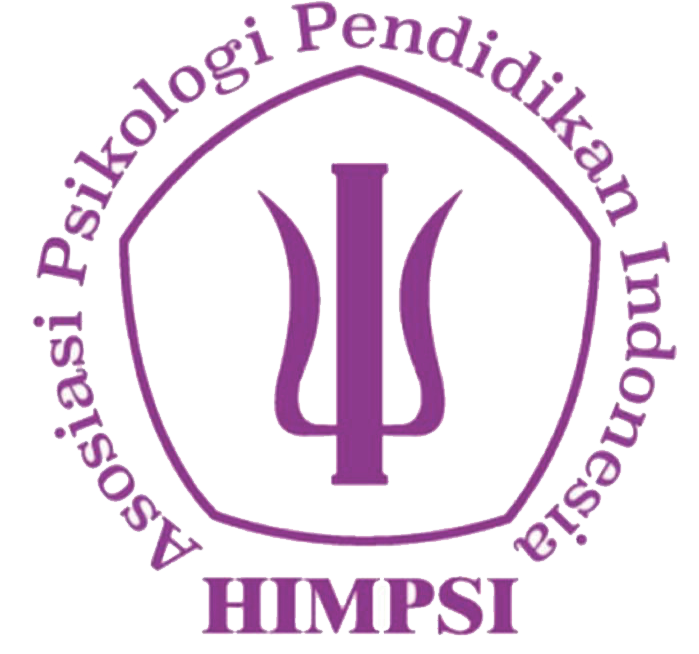Character Strenghts, Islamic Religiousness, and Ethnic Identity: A Preliminary Study on Santri Experiencing Boredom Learning/ Kekuatan Karakter, Religiusitas Islam, dan Identitas Suku: Studi Awal Pada Santri yang Mengalami Kejenuhan Belajar
Abstract
Abstract: The purpose of this study is to explore the factors that influence the occurrence of boredom of learning among Santri in a boarding school in Garut. Then, the researcher continuously tested the relationship of the factors that were assumed to be related variables including character strength, Islamic religiosity and ethnic identity which were considered to be contributive variables that determined the occurrence of boredom learning in Santri. The mixed method research was carried out using thematic content analysis to obtain comprehensive information about boredom learning that occurred in Santri through an open questionnaire. Meanwhile, the partial correlation technique is used to identify how strong the relationship between predetermined factors is. The results of the study of 60 respondents who were selected by purposive technique sampling showed that the factors that caused the students to feel bored included the limited accessibility of leaving the pesantren, not being able to gather with their families, some programs that did not work and the learning process was monotonous. Meanwhile, the factors that cause students to survive are due to the dominant strength of character for studying religious knowledge, the emergence of the notion that pesantren is a good place to develop themselves and the amount of social support from peers. Meanwhile, there is a relationship between the strength of the character being tested, namely creativity, curiosity and persistence with Islamic religiousness (r => .3, p = 1%). Other results indicate that culture becomes a partial variable that has a direct effect on Islamic religiousness and character strengths.
Keywords: ethnic identity; boredom learning; character strengths; Islamic religiousness; Santri
Abstrak: Tujuan dari studi ini adalah untuk melakukan eksplorasi terhadap faktor-faktor yang berpengaruh terhadap terjadinya kejenuhan belajar pada santri di salah satu pondok pesantren di Garut. Kemudian, peneliti menguji secara berkelanjutan hubungan dari faktor-faktor yang diasumsikan menjadi variabel terkait meliputi kekuatan karakter, religiusitas Islam dan identitas suku yang dianggap menjadi variabel kontributif yang menentukan terjadinya kejenuhan belajar pada santri tersebut. Metode penelitian campuran dilakukan dengan menggunakan analisis konten tematik untuk mendapatkan informasi komprehensif tentang situasi kejenuhan belajar yang terjadi pada santri melalui kuesioner terbuka. Sementara itu, teknik korelasi parsial digunakan untuk mengidentifikasi seberapa kuat keterkaitan dari faktor-faktor yang sudah ditentukan. Hasil penelitian dari 60 responden yang dipilih dengan purposive technique sampling menunjukkan bahwa faktor yang menyebabkan santri merasa bosan diantaranya yakni terbatasnya aksesibilitas keluar pesantren, tidak bisa berkumpul dengan keluarga, program ada yang tidak jalan dan proses pembelajaran yang monoton. Sedangkan faktor yang menyebabkan santri bisa bertahan karena adanya kekuatan karakter yang dominan untuk mempelajari ilmu agama, munculnya anggapan bahwa pesantren adalah tempat yang baik dalam mengembangkan diri serta banyaknya dukungan sosial dari teman sebaya. Sementara itu, terdapat hubungan dari kekuatan karakter yang diujikan yaitu kreativitas, keingintahuan dan ketekunan dengan religiusitas Islam (r = > .3, p = 1 %). Hasil lainnya menunjukkan bahwa budaya menjadi variabel parsial yang mempunyai efek secara langsung terhadap religiusitas Islam dan kekuatan karakter.
Kata Kunci: identitas etnik; kejenuhan belajar; kekuatan karakter; religiusitas Islam, Santri
Keywords
Full Text:
PDF (Bahasa Indonesia)References
Almarzooq, Z., Lopes, M., & Kochar, A. (2020). Virtual learning during the covid-19 pandemic. Journal of the American College of Cardiology, 75(20), 2635–2638.
Amaliah, I., Aspiranti, T., & Purnamasari, P. (2015). The mpact of the values of islamic religiosity to islamic job satisfaction in Tasikmalaya West Java, Indonesia. Procedia - Social and Behavioral Sciences, 211(September), 984–991. https://doi.org/10.1016/j.sbspro.2015.11.131
Amrullah, S., Tae, L. F., Irawan, F. I., Ramdani, Z., & Prakoso, B. H. (2018). Studi sistematik aspek kreativitas dalam konteks pendidikan. Psympathic : Jurnal Ilmiah Psikologi, 5(2), 187–200. https://doi.org/10.15575/psy.v5i2.3533
Azwar, S. (2015). Validitas dan Reliabilitas. Pustaka Belajar.
Banicki, K. (2014). Positive psychology on character strengths and virtues. A disquieting suggestion. New Ideas in Psychology, 33(1), 21–34. https://doi.org/10.1016/j.newideapsych.2013.12.001
Bogomaz, S. A., Litvina, S. A., Kozlova, N. V., & Atamanova, I. V. (2015). Culture-specific Subjective Evaluation of Character Strengths. Procedia - Social and Behavioral Sciences, 200(October), 92–100. https://doi.org/10.1016/j.sbspro.2015.08.024
Cao, W., Fang, Z., Hou, G., Han, M., Xu, X., & Dong, J. (2020). The psychological impact of the COVID-19 epidemic on college students in China. Psychiatry Research, 287(March), 112934. https://doi.org/10.1016/j.psychres.2020.112934
Düşek, G., & Ayhan, A. B. (2014). A Study on Problem Solving Skills of the Children from Broken Family and Full Parents Family Attending Regional Primary Boarding School. Procedia - Social and Behavioral Sciences, 152, 137–142. https://doi.org/10.1016/j.sbspro.2014.09.170
Etikan, I. (2016). Comparison of Convenience Sampling and Purposive Sampling. American Journal of Theoretical and Applied Statistics, 5(1), 1. https://doi.org/10.11648/j.ajtas.20160501.11
Fahmi, I., & Ramdani, Z. (2014). Profil kekuatan karakter dan kebajikan pada mahasiswa berprestasi. Psympathic : Jurnal Ilmiah Psikologi, 1(1), 98–108. https://doi.org/https://doi.org/10.15575/psy.v1i1.471
Feng, Z., Cheng, Y., Ye, L., Zhou, M., Wang, M., & Chen, J. (2020). Is home isolation appropriate for preventing the spread of COVID-19? Public Health. https://doi.org/10.1016/j.puhe.2020.03.008
Hasan, N., & Bao, Y. (2020). Impact of “e-Learning crack-up” perception on psychological distress among college students during COVID-19 pandemic: A mediating role of “fear of academic year loss.” Children and Youth Services Review, 118(July), 105355. https://doi.org/10.1016/j.childyouth.2020.105355
Leavy, P. (2017). Research design: quantative, qualitative, mixed methods, arts-based, and community-based participatory research approaches (T. G. Press (Ed.)).
Lisk, S., Vaswani, A., Linetzky, M., Bar-Haim, Y., & Lau, J. Y. F. (2020). Systematic review and meta-analysis: Eye-tracking of attention to threat in child and adolescent anxiety. Journal of the American Academy of Child and Adolescent Psychiatry, 59(1), 88-99.e1. https://doi.org/10.1016/j.jaac.2019.06.006
Marliani, R., Nasrudin, E., Rahmawati, R., & Ramdani, Z. (2020). Regulasi Emosi, stres , dan kesejahteraan Psikologis : Studi pada ibu work from home dalam menghadapi pandemi COVID-19. In Karya Tulis Ilmiah LP2M UIN SGD Bandung.
Marliani, R., Ramdani, Z., & Imran, J. M. H. (2019). Validation of happiness scale convergence in santri through Multi-trait Multi-method Analysis. Psikohumaniora: Jurnal Penelitian Psikologi, 4(2), 143–156. https://doi.org/10.21580/pjpp.v4i2.3670
Martínez-Martí, M. L., & Ruch, W. (2017). Character strengths predict resilience over and above positive affect, self-efficacy, optimism, social support, self-esteem, and life satisfaction. Journal of Positive Psychology, 12(2), 110–119. https://doi.org/10.1080/17439760.2016.1163403
McCalman, J., Benveniste, T., Wenitong, M., Saunders, V., & Hunter, E. (2020). “It’s all about relationships”: The place of boarding schools in promoting and managing health and wellbeing of Aboriginal and Torres Strait Islander secondary school students. Children and Youth Services Review, 113(April), 104954. https://doi.org/10.1016/j.childyouth.2020.104954
Mishra, L., Gupta, T., & Shree, A. (2020). Online teaching-learning in higher education during lockdown period of COVID-19 pandemic. International Journal of Educational Research Open, 1, 100012. https://doi.org/10.1016/j.ijedro.2020.100012
Obergriesser, S., & Stoeger, H. (2020). Students’ emotions of enjoyment and boredom and their use of cognitive learning strategies – How do they affect one another? Learning and Instruction, 66(December 2018), 101285. https://doi.org/10.1016/j.learninstruc.2019.101285
Pakenham, K. I., Landi, G., Boccolini, G., Furlani, A., Grandi, S., & Tossani, E. (2020). The moderating roles of psychological flexibility and inflexibility on the mental health impacts of COVID-19 pandemic and lockdown in Italy. Journal of Contextual Behavioral Science, 17(July), 109–118. https://doi.org/10.1016/j.jcbs.2020.07.003
Peterson, C., & Seligman, M. E. . (2004). Character Strengths and Virtues: A Handbook and Classification. In American Journal of Psychiatry (Vol. 162, Issue 4). https://doi.org/10.1176/appi.ajp.162.4.820-a
Raiya, H. A., Pargament, K., Mahoney, A., & Stein, C. (2008). A psychological measure of islamic religiousness: Development and evidence for reliability and validity. International Journal for the Psychology of Religion, 18(4), 291–315. https://doi.org/10.1080/10508610802229270
Ramdani, Z. (2018). Construction of academic integrity scale. International Journal of Research Studies in Psychology, 7(1), 87–97. https://doi.org/10.5861/ijrsp.2018.3003
Ramdani, Z., Amri, A., Warsihna, J., Garnasih, T. R., & Juarsa, E. (2021). Perilaku manajemen keuangan karyawan selama pandemi covid-19: Sebuah studi awal. E-Qien: Jurnal Ekonomi Dan Bisnis, 8(1), 170–179.
Ramdani, Z., Prahastuti, N. F., & Prakoso, B. H. (2019). Exploration of attitude and knowledge about turnitin usage and paraphrasing technique in academic context. Indonesian Journal of Educational Assessment, 2(2), 13–19.
Ramdani, Z., Supriyatin, T., & Susanti, S. (2018). Perumusan dan pengujian instrumen alat ukur kesabaran sebagai bentuk coping strategy. Jurnal Psikologi Islam Dan Budaya, 1(2), 97–106.
Salsabila, D. F., Rofifah, R., Natanael, Y., & Ramdani, Z. (2019). Uji Validitas Konstruk Indonesian-Psychological Measurement of Islamic Religiousness (I-PMIR). Jurnal Psikologi Islam Dan Budaya, 2(2), 1–10. https://doi.org/10.15575/jpib.v2i2.5494
Sousa, A. De, Mohandas, E., & Javed, A. (2020). Psychological interventions during COVID-19: Challenges for low and middle income countries. Asian Journal of Psychiatry, 102128. https://doi.org/10.1016/j.ajp.2020.102128
Susanto, T., Sulistyorini, L., Wuryaningsih, E. W., & Bahtiar, S. (2016). School health promotion: A cross-sectional study on Clean and Healthy Living Program Behavior (CHLB) among Islamic Boarding Schools in Indonesia. International Journal of Nursing Sciences, 3(3), 291–298. https://doi.org/10.1016/j.ijnss.2016.08.007
Tae, L. F., Ramdani, Z., & Shidiq, G. A. (2019). Analisis tematik faktor-faktor yang mempengaruhi keberhasilan siswa dalam pembelajaran sains. Indonesian Journal of Educational Assesment, 2(1), 79. https://doi.org/10.26499/ijea.v2i1.18
Toner, E., Haslam, N., Robinson, J., & Williams, P. (2012). Character strengths and wellbeing in adolescence: Structure and correlates of the Values in Action Inventory of Strengths for Children. Personality and Individual Differences, 52(5), 637–642. https://doi.org/10.1016/j.paid.2011.12.014
Vogel-Walcutt, J. J., Fiorella, L., Carper, T., & Schatz, S. (2012). The definition, assessment, and mitigation of state boredom within educational settings: A comprehensive review. Educational Psychology Review, 24(1), 89–111. https://doi.org/10.1007/s10648-011-9182-7
Warsihna, J., & Ramdani, Z. (2020). Signifikansi Kahoot: Interaksi manusia dan mesin dalam proses pembelajaran. Kwangsan: Jurnal Teknologi Pendidikan, 08(02), 154–167.
Zvolensky, M. J., Garey, L., Rogers, A. H., Schmidt, N. B., Vujanovic, A. A., Storch, E. A., Buckner, J. D., Paulus, D. J., Alfano, C., Smits, J. A. J., & O’Cleirigh, C. (2020). Psychological, addictive, and health behavior implications of the COVID-19 pandemic. Behaviour Research and Therapy, 134(August), 103715. https://doi.org/10.1016/j.brat.2020.103715
DOI: https://doi.org/10.18860/psikoislamika.v18i1.11347

This work is licensed under a Creative Commons Attribution-NonCommercial-ShareAlike 4.0 International License.



.jpg)


.jpg)